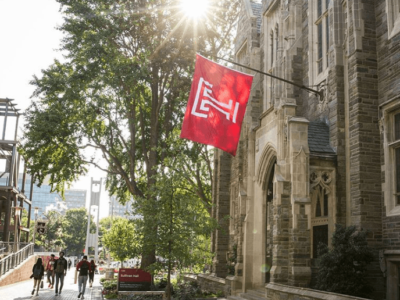Being #independent means no one holds your hand when you cross the street. But college streets can land you in danger. Besides the everyday pitfalls like almost burning down your apartment attempting to cook pasta or safely weaving through crowds of students flailing to the Chainsmokers, college can feel scary. We’re talking actual crime. These 10 campuses, though, have gone above and beyond to make safety a priority. Their campus safety initiatives, sexual assault programming and student orgs devoted to safety keep their campuses as idyllic as the brochures promised. Not to mention, their low crime rates and high freshman retention rates prove their methods work. These 10 safest college campuses put mama and papa bear at ease.
Pro tip: Don’t risk another walk home in the dark. Get a Maglite flashlight and find your way back safely.
Check out the top 10 safest college campuses.
10. University of Central Oklahoma
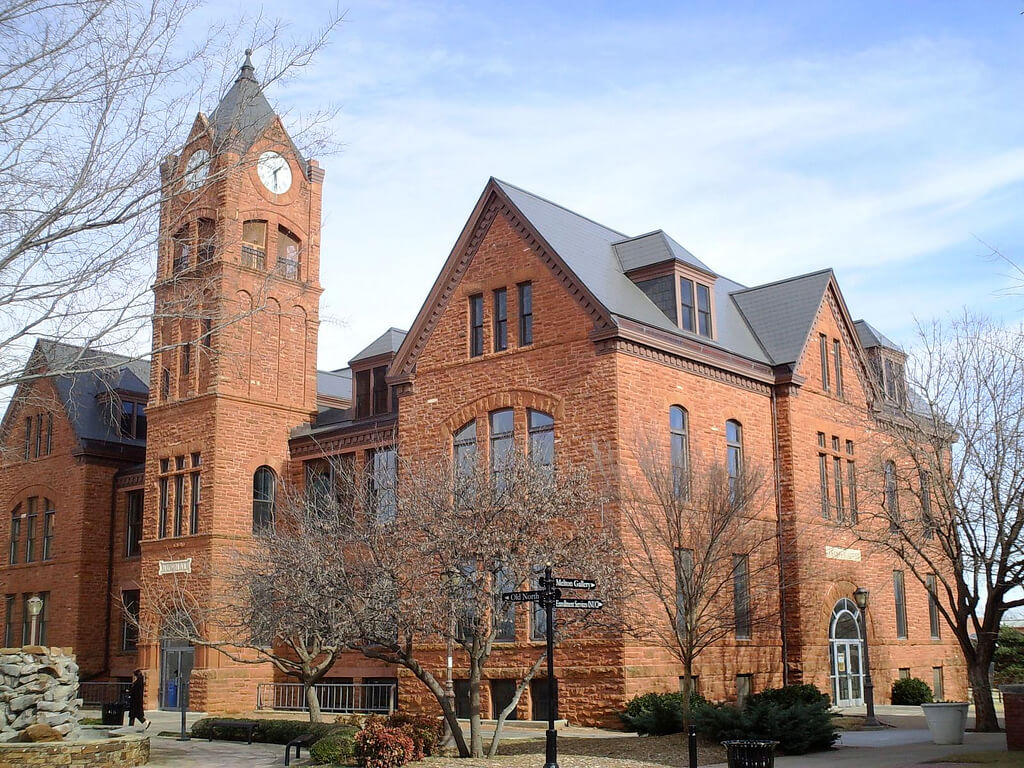
You’ll feel more than OK on this downhome western campus with Buddy Broncho as your neighbor. The Bronchos take a strong stance on sexual assault by providing many resources for survivors. One initiative, Project SPEAK (Support, Promote, Educate and Advocate for Knowledge) provides referrals for Victim Protection Orders and counseling. AAUW @Central, a student organization for the empowerment of women and advocacy for women’s rights, and the Women’s Outreach Center also promote women’s wellbeing on campus. Other UCO organizations take on the wellbeing of all of students on campus, like TADCA, a student team against substance abuse, and Off-Campus Ambassadors, a group designed build a safe community for off-campus students. Students can grab safety by its Broncho horns themselves by serving as a Student Campus Safety Officer or by using Broncho Five-O, the anonymous tip line that encourages students to report suspicious activity without consequences to the student.
9. University of Massachusetts-Amherst

Safety matters at UMass Amherst. Students see that through UMatter @UMass, which encourages a spirit of empathy so that every student feels valued. Student orgs and campus safety pick up the slack to address the rest of student safety concerns. The Campus Emergency Response and Medical Reserve Corps, Coalition to End Rape Culture, and Off Campus Student Center all place students in charge of each other’s health and wellbeing. Campus safety includes initiatives to party like a smarty with Safe Celebrations, and Project Protect Valuables as well as Emergency Preparedness to keep students ready for possible disasters. And UMass doesn’t just address each sexual assault case as it happens. UMass has a Center for Women and Community (CWC) for women to feel empowered and a men’s center to teach healthy masculinity. “The Community Education Program of CWC provides in person, evidence based training and prevention education on campus to over 1,500 campus members annually,” UMass CWC director Becky Lockwood said. “CWC trains Resident Education staff and Peer Mentors on using trauma informed practices to respond to disclosures of sexual violence every year. Through collaborations with academic departments, CWC provides high dosage prevention education addressing consent, sexual assault, healthy relationships and bystander intervention to students.”
8. Brigham Young University
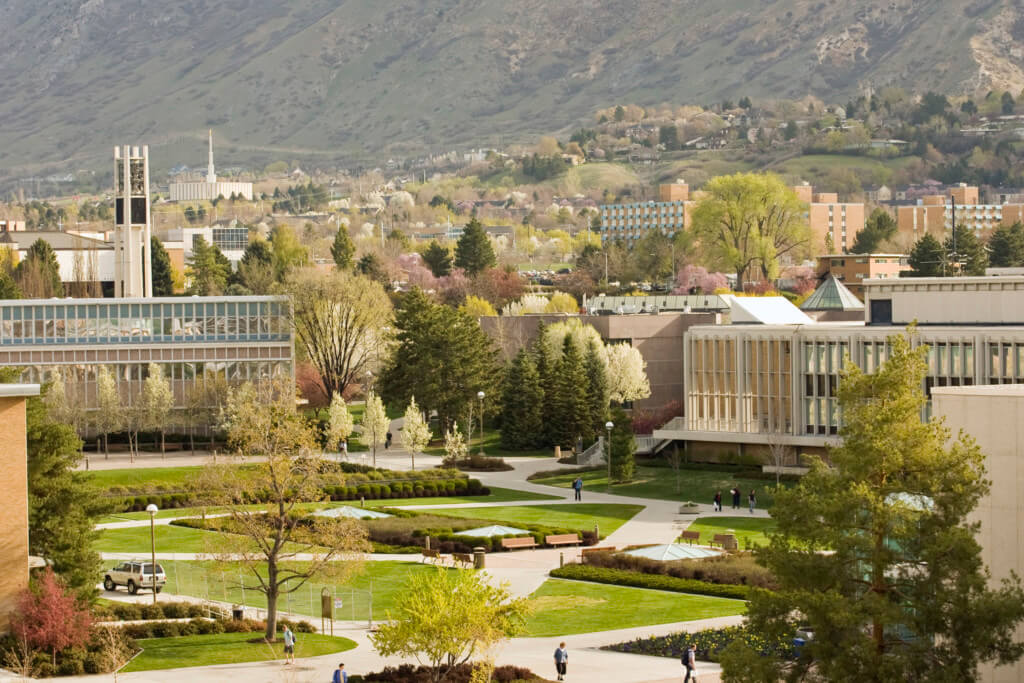
BYU students say their student honor code prevents them from committing crimes. This may sound like an administrator-trying-to-get-donations talk, but if you look at BYU crime, you’ll see very little violent crime on campus (only five sex-related crimes, one assault and eight counts of stalking were reported in 2016). BYU’s campus safety officials tout BYU’s culture of safety model. The culture of safety includes leadership and employee involvement, training, safety incident management, hazard identification and control, policy and procedure, and measuring and evaluating. In short, the police know their stuff. Plus, the Title IX office gets involved as early as orientation with required sessions for new students. “We hold safety seminars at the first of each semester in all of our housing areas where we re-address safety issues in great depth. Likewise, our Title IX office hosts a wide variety of events aimed at awareness of sexual misconduct, where we focus not only on the reality of these behaviors, but also what healthy relationships look like, while also providing risk-reduction strategies,” University Communications director Todd Hollingshead said. Campus safety also encourages the “if you see something, say something” model, active shooter training, a SafeWalk program and RAD self-defense (students can also join the self-defense club). In one student org, Parity, BYU addresses rape culture and gender inequality.
7. Princeton University
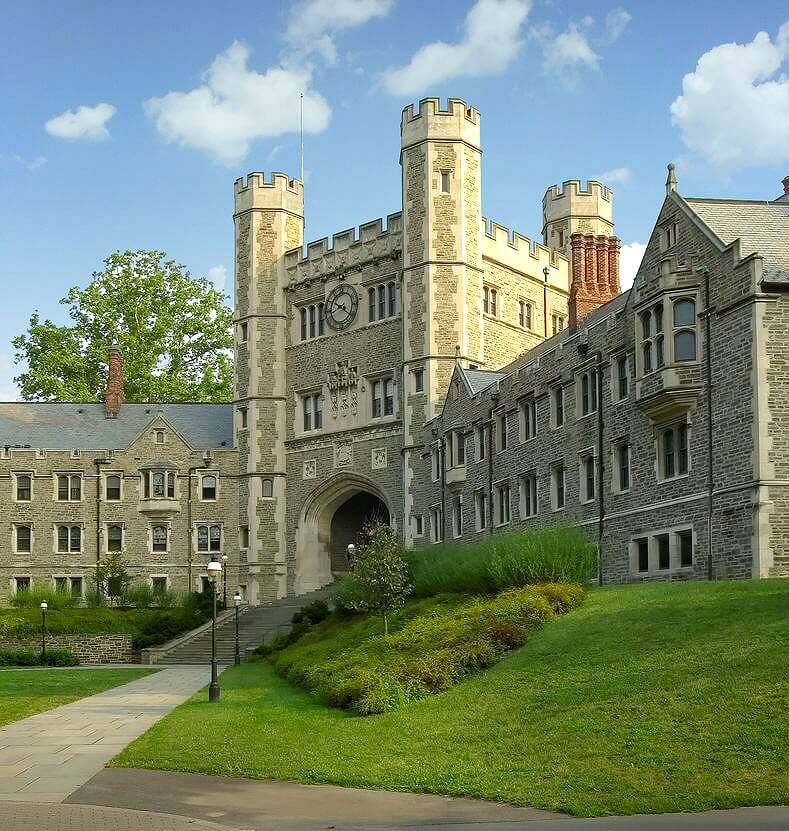
At Princeton, anyone sketchy can catch these hands—catch them holding your phone with the Princeton campus safety app, at least. The app sends a distress signal and your location information to campus safety officers when you slide the SOS slider. If you want to hang out with Princeton Police under better circumstances, look into the community night out for some drug and crime-free fun and safety demonstrations (if you’re lucky you can meet some K-9s). Campus safety will take you home at the end of the night with a free safe ride shuttle. Or if you can drive yourself, but need a jump, campus police will swoop in and save the day. The Sexual Harassment/Assault Advising, Resources and Education (SHARE) and Womanspace take care of women who experience sexual assault. With a freshman return rate of 98 percent, clearly these initiatives work to make students and their parents feel safe.
6. University of Texas
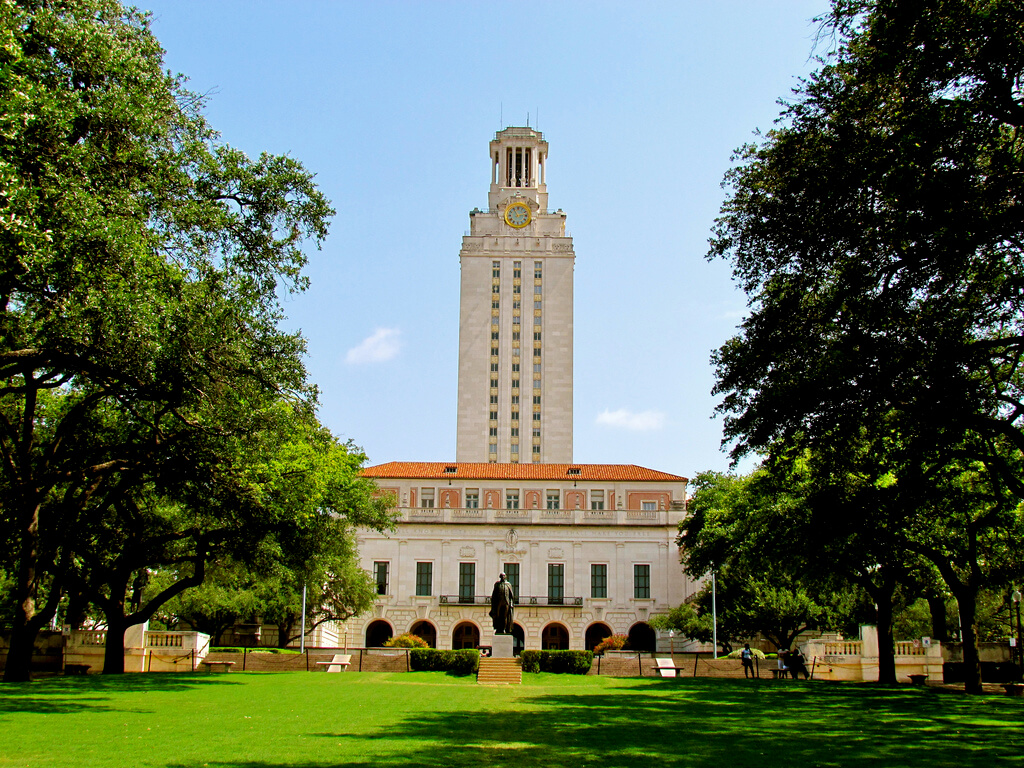
University of Texas has an alphabet soup of acronyms for their many campus safety initiatives: Behavior Concerns Advice Line (BCAL), SURE walk, Campus Climate Response Team (CCRT) and Student Emergency Services (SES). Plenty of student orgs keep Texas boots walking the straight and narrow with Street Law, Voices Against Violence, Steps for Survivors, Texas Community Helping Organization, Texas Men of Excellence, Gateway Mentor Program, S.M.I.L.E., Center for Students in Recovery, UTerus and Enable 360. They provide education, support and opportunities to make the campus a safer place. Director of the Center for Students in Recovery, Sierra Castedo, said her organization and other organizations on campus keep students safe by focusing on their wellbeing. “Because many injuries and accidental poisoning deaths involve intoxicating substances, resources that help those who have found recovery stay in recovery are critical in the effort to make campuses and communities safer,” Castedo said. “Further, students who have an untreated addiction may be at greater risk of being the victim of a violent crime.” Texas’s campus climate survey paved the way for all future surveys to address how students feel about their safety on campus as one of the most comprehensive surveys of its kind. Texas knows what its students want and they make it happen.
5. University of Pennsylvania

Over 700 blue light emergency phones bathe this campus in the hue of safety. 98 percent of freshman return to campus for a second year under the watchful eye of UPenn Public Safety’s many physical and electronic methods of protection. UPenn’s 24/7 walking escort program, PennReady Emergency Team—a group of trained volunteers to assist in emergencies—and RAD self-defense classes make up the physical protection against danger. You can take the rest into your own hands with safety resources on your phone. The Penn Guardian app allows you to builds a profile of important medical information, gives your GPA coordinates to emergency help if you are not able to give your location, allows you to text emergency help if you are unable to speak, and lets you submit anonymous tips about unsafe situations. You can also receive UPenn alerts on your phone when an emergency situation occurs and access a 24-hour campus resource help line for health and wellbeing services. Off campus, Women Organized Against Rape (WOAR), Women Against Abuse (WAA), and Philadelphia Sexual Assault Response Center (PSARC) come to the rescue in cases of sexual assault. UPenn’s websites for sexual assault policies and public safety have pages and pages of information and helpful tips to inform students of these resources.
4. Eastern Illinois University
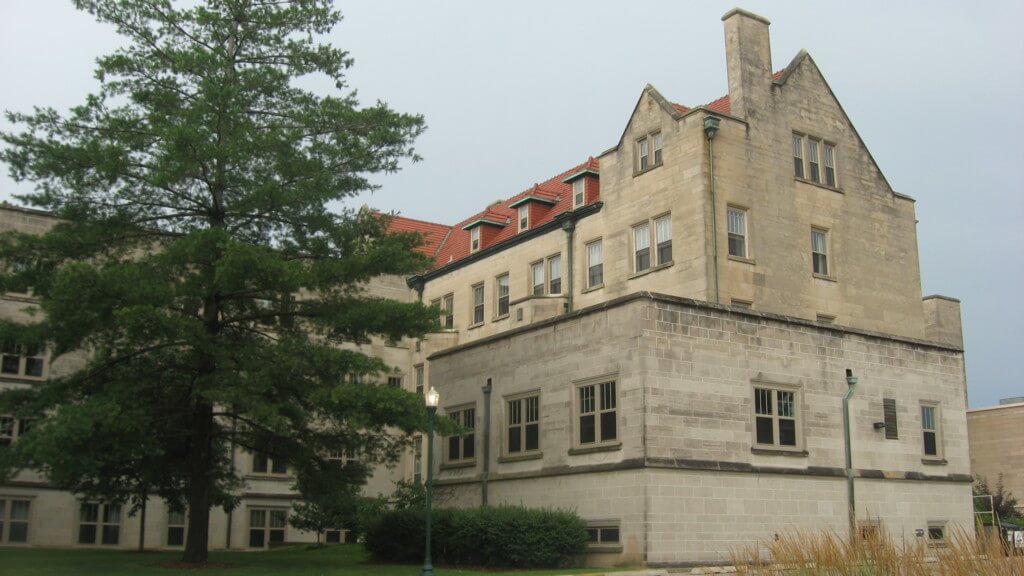
EIU doesn’t let safety sleep. 24/7 dorm patrols, EIU text alerts and 19 blue light emergency phones keep students protected all the way through their nights out or academic all-nighters. To keep students safe from sexual assault, EIU offers RAD (Rape Aggression Defense) and Alcohol EDU to students, specialized training to RAs, campus workshops on sexual assault prevention and bystander intervention training to all. “EIU provides its students with access to multiple resources for staying safe in the area. For example, the EIU Police Department participates in several outreach events each year, including Coffee with the Cops, Pizza with the Cops and similar events that help bring law enforcement and students together in keeping the campus and the community safe,” Public Information Coordinator Josh Reinhart said. When you know your police officers on a first name basis, you know that they’ll have your back.
3. Ohio University

Ohio University should hang their Clery Report on their police department’s break room fridge. That means no murders, motor vehicle thefts or statutory rapes on campus made it to their latest crime statistics report. Campus safety’s escort service, vehicle assistance, safety and crime prevention programs, intervention team, risk management and safety department, and quick safety reference guide all provide students with the care they need to combat crime. Ohio also offers sexual assault programming. Lace up your gym shoes to participate in Walk a Mile in Her Shoes to end rape culture or put on your most body-positive outfit for Love Your Body Day to promote women’s confidence. You can also volunteer with the women’s shelter, or participate in programs for mentoring, young women leaders or survivor advocacy and outreach. With chances to get involved like this one, make yourself part of the solution to campus risks.
2. Lehigh University
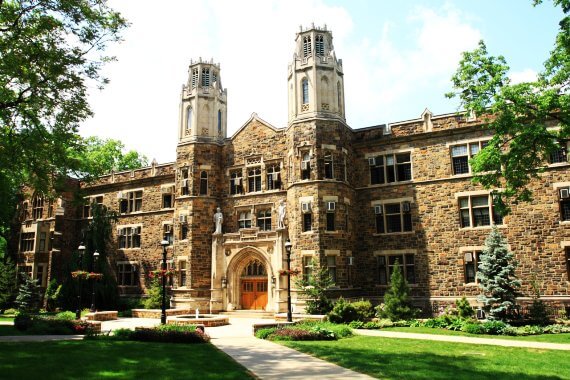
The Clery Act, requiring schools to report on-campus crime annually, got its name from a Lehigh University student murdered in 1986. Since that tragic incident, Lehigh devoted itself to becoming a safer place for students. Campus safety makes getting from point A to point B A-OK with Take a Ride Around Campus Safely (TRACS), walking escorts and a free campus bus service. You can report and get notified about crimes ASAP, unlike that midterm report that hit you out of nowhere. With over 100 outdoor emergency telephones, a detailed safety brochure updated frequently, an EmergenSee app for reporting crimes and LU Alerts to inform students that a crime occurred, LU tech keeps you on top of crime. Lehigh also has a very transparent policy on sexual assault: You can find all you need to know about reporting, the judicial process and mandatory reporters on their website. Lehigh’s sexual assault prevention program, Lehigh Says No More, involves students and faculty to address sexual assault and domestic violence. Lehigh even has a reporting process specifically for gender violence.
1. Michigan Technological University

Prepare yourself for a long list. Resident Officer Program, R.A.D. (Rape Awareness Defense), National Night Out, Fire Safety Day, Safe Walk, Operation I.D., Bicycle Registration, Alcohol/Drug Awareness presentations, Lunch With The Law Program, Personalized Safety presentations, Residential Life monthly meetings, Staying Safe at Tech presentation, RA Training program and the Sexual Assault and Violence Education (SAVE) group all work hard to keep students safe in so many incredible ways your head will spin. And campus meds will rush to your service to spin it back. Not to mention, DialHelp, Safe Walk, It’s On Us, Love is Respect, Know Your Title IX and MCEDSV make up their list of sexual assault programs. “These are just a few of the ways that we work to keep lines of communication and trust open with our students. We believe that by cultivating an atmosphere of mutual trust, we can better serve them and count on them as partners to keep our campus safe. We also subscribe to the belief that campus safety is a responsibility shared by everybody on campus,” Michigan Tech Chief of Police Brian Cadwell said. With a crime rate 53 percent lower than the average for college campuses, you hopefully won’t even need to use many of these resources.
Get proactive about your safety. When you’re walking on campus, carry a Maglite flashlight so you can steer clear of danger. Get 20% off with code: COLLEGEMAG.









